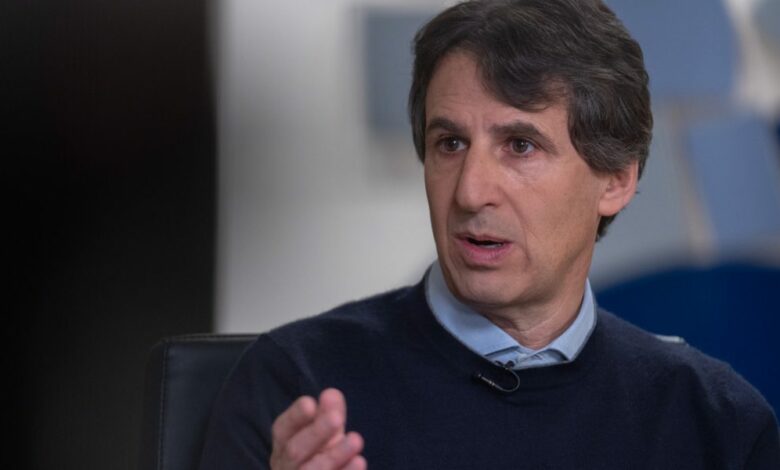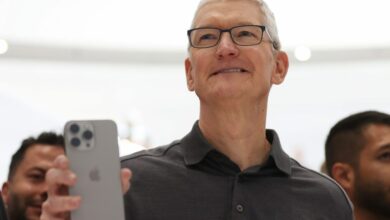Apollo calls AI a “bubble” worse than the dotcom era


When Nvidia crossed the $2 trillion market cap threshold on Friday, tech bull Dan Ives of Wedbush Securities predicted the party was just starting for artificial intelligence stocks.
By the look of it, billionaire Marc Rowan is happy to be on the opposite side of that trade after his investment firm Apollo Global Management warned valuations have surpassed the excesses of the dotcom era.
“The top 10 companies in the S&P 500 today are more overvalued than the top 10 companies were during the tech bubble in the mid-1990s,” wrote Torsten Sløk, partner and chief economist at Rowan’s wealth manager, in a research note published on Sunday.
The Princeton-trained economist with over 25 years in the industry has adopted a cautious view of late, predicting this month that what appears to be a soft landing for the U.S. is in fact a “fragile equilibrium”. He estimates the chances are greater than 50% that the Federal Reserve will surprise markets by course correcting: either it will cut rates in panic or it may end up even having to hike them.
Whereas Ives is a buy-side analyst making a living by marketing tech stocks to clients, however, Sløk’s employer is the one actually risking capital and can therefore ill afford succumbing to market hype.
His warning comes after Nvidia posted the single biggest gain in market cap in history, gaining $277 billion on Thursday alone, more than the overall value of a Coca-Cola or Bank of America. Perhaps just as worrying, it crushed a record that had been set by Meta only earlier this month.
Nvidia’s business is fuelled by a wave of demand for its data center chips that power advanced generative AI such as Sora, the latest breakthrough from Open AI that creates photorealistic videos up to 60 seconds long from a few text prompts.
Customers have flooded Nvidia with so many orders for AI inference training chips like the H100 Tensor Core GPU that CEO Jensen Huang must weigh how best to fairly distribute his company’s chips. Microsoft boss Satya Nadella is now looking to get a cut of Nvidia’s action with its own Maia chip, while Tesla CEO Elon Musk admitted he may not have even invested in his high-risk Dojo supercomputer project had he been able to get his hands on enough Nvidia chips.
Concerns over whether soaring expectations can be met
Nvidia has even become a matter of national security, with the U.S. prohibiting the export of its high performance chips to China. Thanks to the advent of Nvidia-powered AI systems, founder and CEO Jensen Huang has now suggested parents should stop encouraging their kids to learn how to code since that will be handled by machines in the future.
“It is our job to create computing technologis that nobody has to program,” he said at the World Governments Summit in Dubai two weeks ago, adding that the miracle of AI now meant that “everybody in the world is now a programmer.”
One asset manager who surprisingly seems to be taking the side of Apollo’s Sløk is none other than ARK Invest founder Cathie Wood. The disruptive tech evangelist and AI champion recently lowered her exposure to the AI semiconductor space, selling $4.5 million worth of share in Nvidia. On Friday she also trimmed her holding in foundry Taiwan Semiconductor Manufacturing Company, which produces the Nvidia chips, for the first time in over two years.
Wood told the Wall Street Journal’s Take on the Week podcast recently that she expects Nvidia competitors will soon start to pressure margins at Huang’s company.
“The expectation levels just get so high that they cannot be met,” she said.
Whether she might otherwise harbor Sløk’s misgivings about the Magnificent Seven tech stocks behind the continued equity market rally, she did not reveal.
Source link




